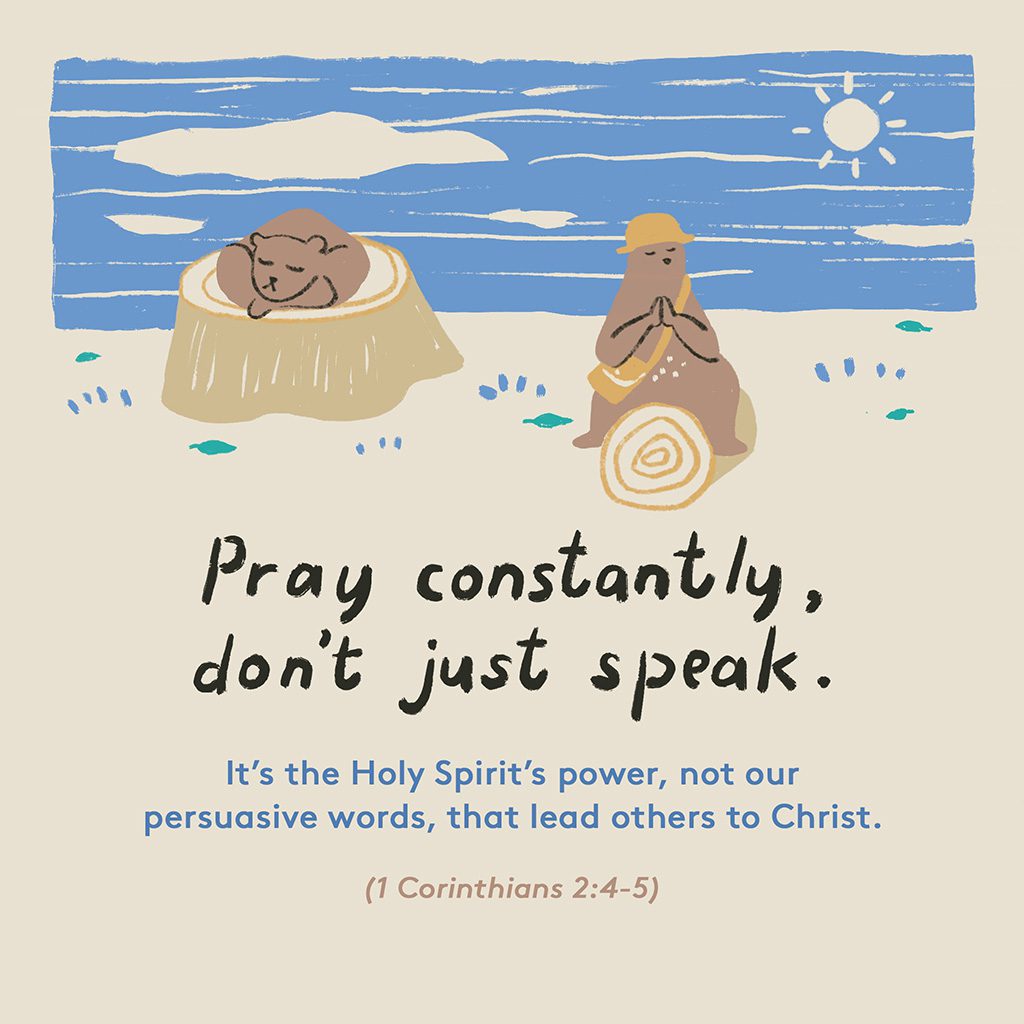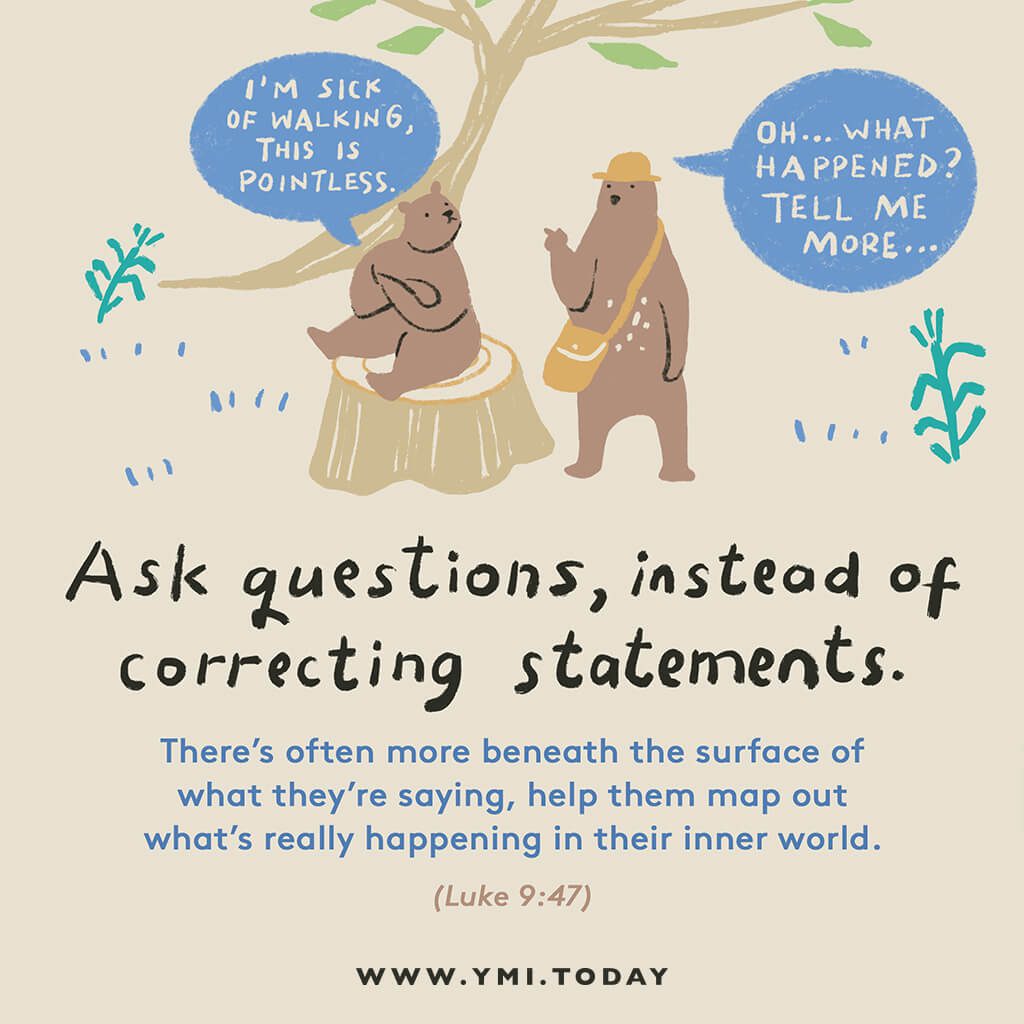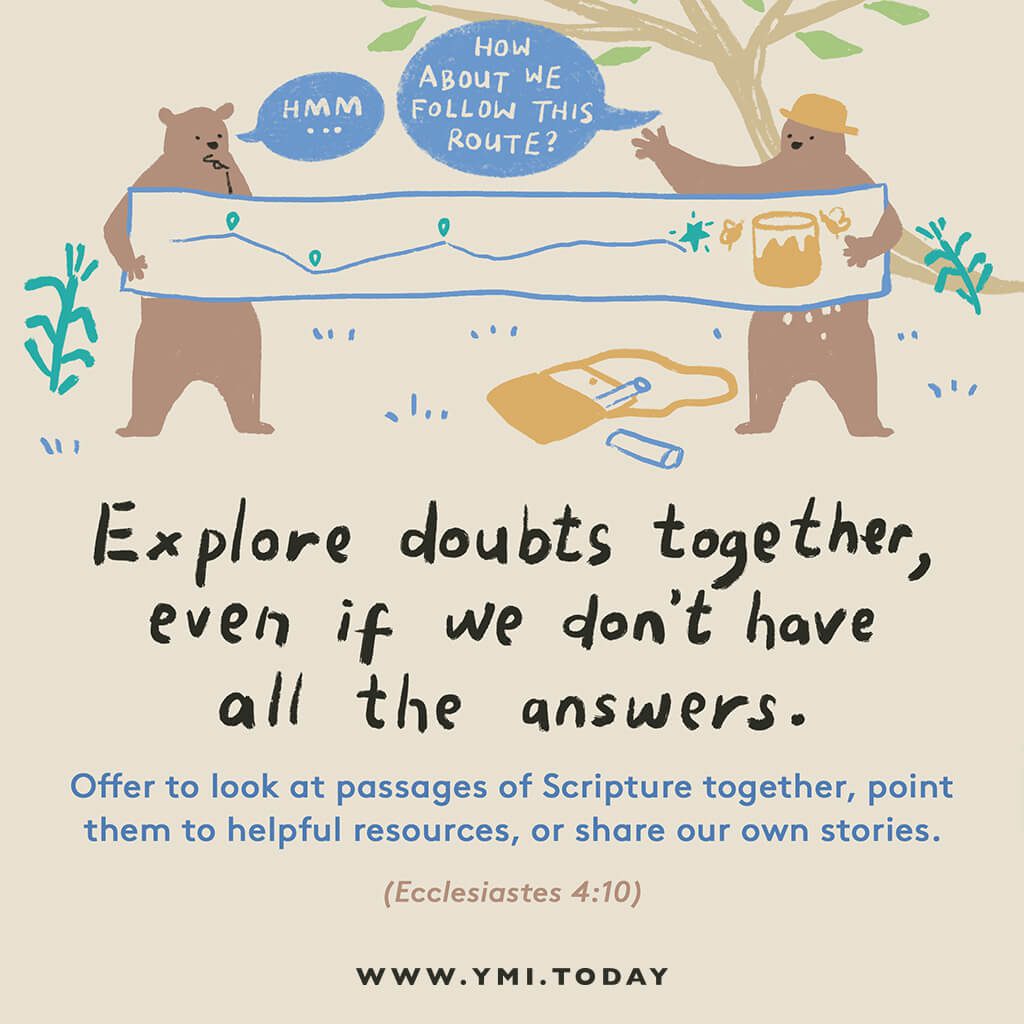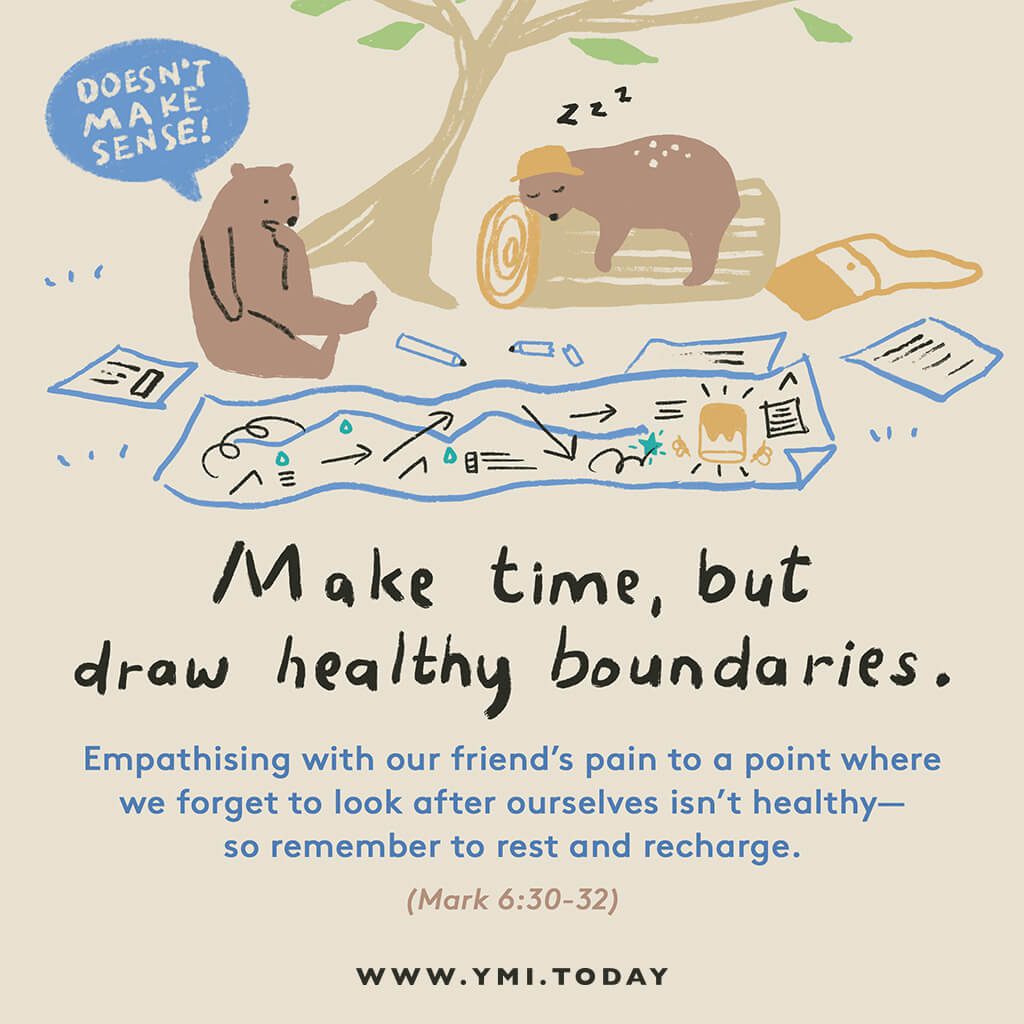How to Walk With A Friend Who’s Doubting the Faith | YMI
It can be stressful when someone we love starts to doubt God. We worry that we won’t have the answers to convince them to stay in the faith, and fear what will happen if they were to leave God completely.
But doubts are a perfectly normal part of a Christian’s journey. And God is more than capable of helping us figure out what faith means in the face of life’s difficult realities. Here are a few suggestions for how we can journey with our friends who are doubting the faith and asking the tough questions

1. Pray constantly, don’t just speak
It’s vital that we remember that it’s the Holy Spirit’s power, not our persuasive words, that convicts a person to faith (1 Corinthians 2:4–5).
So let’s pray for God’s guidance as we interact with our friend, so that we can be “useful to [Him] and prepared to do any good work” that will help them reconnect with God (2 Timothy 2:21).
We can also ask for things on our friend’s behalf: that God reveal Himself to them, send them the right resources, and protect them from the evil one as they work through their questions (Ephesians 6:12).

2. Ask questions, instead of correct statements
We may instinctively want to correct our friends’ “erroneous statements” the second they finish their sentence. But whether their doubt looks like logical arguments that question the tenets of Christianity, emotional accusations that challenge God’s character, or irreverent humour that mocks the faith, there’s often more beneath the surface of what they’re saying.
Jesus understood this. He was an expert at hearing the true cry of the people that He met (John 4; Luke 9:47; Luke 5:22; Mark 10:17–22). That allowed Him to speak to the matter of the heart with precision.
Asking questions like—“What triggered these questions/ feelings?”, “What aspect of God’s character are you finding most difficult to believe?”, “What has hurt you the most?”, “What do you fear?”—helps us (and them!) map out what’s really happening in their inner world.

3. Explore doubts together, even if we don’t have all the answers
Getting closer to the reason for their doubts can help us discern what help they may find useful. Even if we don’t have all the answers, we can offer to explore passages of scripture together, and point them to resources or other people who may be more adept at speaking to their particular situation (Ecclesiastes 4:10).
At some point, our friend may ask about our personal experiences with God or what we understand of certain portions of Scripture. The golden rule is useful here (Matthew 7:12): speak to them as we’d wish to be spoken to. Rather than prescribing what they should or should not believe, we can humbly tell our stories and let them determine what is useful for them.

4. Make time, but draw healthy boundaries
It’s easy to become consumed with helping our friend. But empathising with their pain to a point where we forget to look after ourselves isn’t healthy. Even Jesus took time away from the crowds to rest and be alone (Mark 6:30–32; Luke 5:16)!
Sometimes our friends may take their frustration at the world, at God, out on us. Some of this, within reason, is to be expected with someone who’s working through deep pain and doubt. But if the way they’re expressing themselves makes us feel uncomfortable or drained, we can make our boundaries clear. Try something like, “I understand that you’re angry, but I’d like to carry on this conversation without using abusive language.” or “I understand that you’re frustrated, but I’m not able to be present to you right now. Can I get back to you later?”
These boundaries create a safe space for everyone involved. A friend is likely to respect these requests (they may have just forgotten themselves in the moment). If they take offence and decide to stop processing their doubts with us, we can still keep them in prayer, remembering that God will have His ways of reaching out to them.

5. Engage their doubts, but keep building on the friendship
We might care about their spiritual life so much that every conversation becomes about addressing their doubts. But remember, they’re not a project but a person!
It takes time to resolve deep-seated doubts, so we may be on this journey for the long-haul. Let’s not forget to keep doing the things we’ve always enjoyed as friends (Proverbs 17:22a)! Often, the companionship of a dear friend lets a person feel God’s presence. The acceptance that they feel from our love and support may be just what they need to keep persevering in the faith.

Even the “strongest” of us may question God. But these seasons of doubt can eventually lead us to a place of deeper faith. Let’s keep trusting God for our friend; He is the One who loves them the most.











Hi, i totally enjoyed this blog and learned a lot, thank you for the how tos!
I also want to point out that there is a mistake in your drawing, it’s on the first drawing no.1 it should be 1 Corinthians 2:4-5 but in the picture it’s 2 Corinthians 2: 4-5.
but thank you for this blog! it helps me to help a friend 🙂 God bless you!
sending love from Indonesia 🙂